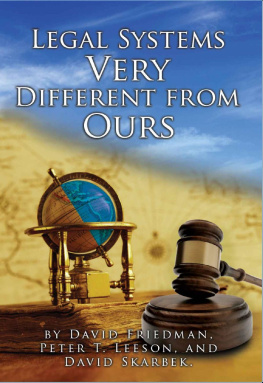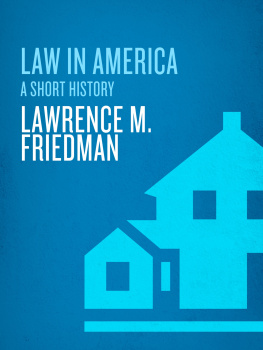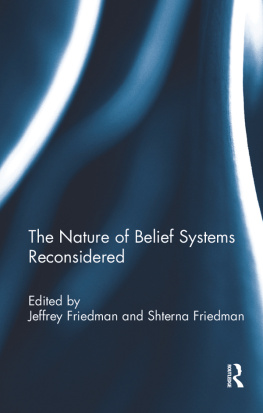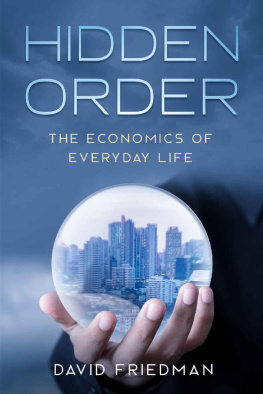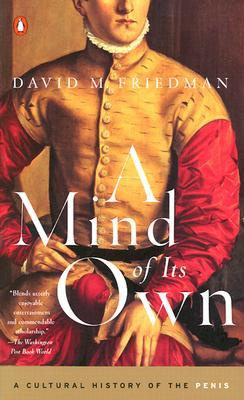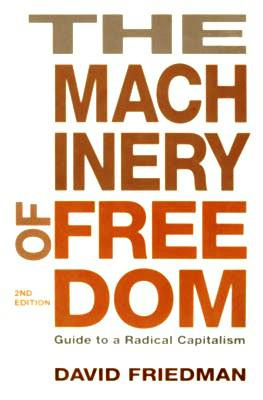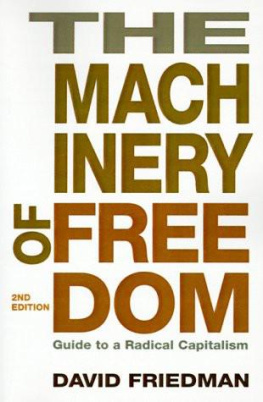David D. Friedman - Legal Systems Very Different From Ours
Here you can read online David D. Friedman - Legal Systems Very Different From Ours full text of the book (entire story) in english for free. Download pdf and epub, get meaning, cover and reviews about this ebook. year: 2019, publisher: Self-published, genre: Home and family. Description of the work, (preface) as well as reviews are available. Best literature library LitArk.com created for fans of good reading and offers a wide selection of genres:
Romance novel
Science fiction
Adventure
Detective
Science
History
Home and family
Prose
Art
Politics
Computer
Non-fiction
Religion
Business
Children
Humor
Choose a favorite category and find really read worthwhile books. Enjoy immersion in the world of imagination, feel the emotions of the characters or learn something new for yourself, make an fascinating discovery.
- Book:Legal Systems Very Different From Ours
- Author:
- Publisher:Self-published
- Genre:
- Year:2019
- Rating:5 / 5
- Favourites:Add to favourites
- Your mark:
- 100
- 1
- 2
- 3
- 4
- 5
Legal Systems Very Different From Ours: summary, description and annotation
We offer to read an annotation, description, summary or preface (depends on what the author of the book "Legal Systems Very Different From Ours" wrote himself). If you haven't found the necessary information about the book — write in the comments, we will try to find it.
Legal Systems Very Different From Ours — read online for free the complete book (whole text) full work
Below is the text of the book, divided by pages. System saving the place of the last page read, allows you to conveniently read the book "Legal Systems Very Different From Ours" online for free, without having to search again every time where you left off. Put a bookmark, and you can go to the page where you finished reading at any time.
Font size:
Interval:
Bookmark:
Legal Systems Very Different From Ours
David Friedman
Peter T. Leeson
David Skarbek
Chapter 7 copyright Peter Leeson 2019
Chapter 8 copyright David Skarbek 2019
All other chapters copyright David Friedman 2019
Cover by Anna Krupitsky
How far, in the formation of the laws of the Chinese, the ends of substantial justice are even consulted, there must, also, no doubt, be some variety of sentiment. There are certainly many points upon which these laws are altogether indefensible. We shall look in vain, for instance, for those excellent principles of the English law, by which every man is presumed innocent until he is proved guilty; and no man required to criminate himself. Such maxims the Chinese system neither does nor indeed could recognize. But it will scarcely escape observation, that there are other parts of the code which, in a considerable degree, compensate these and similar defects, are altogether of a different complexion, and are perhaps not unworthy of imitation, even among the fortunate and enlightened nations of the West. It is sufficiently obvious, indeed, that the intrinsic merits of any code of laws, which is not professed to be, either the result of the meditations of a philosopher, or the untried theory of a legislator, but which, on the contrary, actually is in force, forms the basis of the government of a nation, and as such, has been fairly submitted to the important test of experience, are not to be estimated by any imaginary standard of perfection.
(Staunton 1828)
Table of Contents
Introduction
Almost forty years ago I became interested in the legal system of saga-period Iceland, a society where if you killed someone his relatives sued you. Trying to make sense of it taught me interesting things not only about that legal system but about law enforcement more generally. Some fifteen years later I got interested in criminal law in eighteenth-century England, a system where prosecution of crime was private, usually by the victim, where all serious crimes were capital but only a minority of those convicted of capital crimes and a small minority of those charged with them were actually executed. It too was interesting.
After another ten years or so it occurred to me that it would be worth doing more work along similar lines, so I invented a seminar on legal systems very different from ours. That meant I had to learn about more legal systems. With the assistance of my schools librarians, I did. Over the years since I have expanded my knowledge with the help of Google, Amazon.com, and the papers of my students. This book is the result. Most of it is mine but it includes two chapters by other authors, each on the subject of that authors research.
The underlying idea is simple. All human societies face about the same problems. They deal with them in an interesting variety of different ways. All of them are grownupsthere is little reason to believe that the people who created the legal systems of Imperial China, Periclean Athens, or saga-period Iceland were any less intelligent than the creators of the U.S. legal system. All of the systems should be taken seriously, each as one way in which a human society dealt with its legal problems.
People I describe the project to often ask which is the best legal system. I doubt there is one. What I am trying to do is to make sense of a large number of different legal systems, how they worked, what problems they raised, how those problems were dealt with.
Adequately studying even one legal system and the society it was embedded in is a large, possibly a lifetime, job. I cannot do it for eleven different ones. To deal with that problem I attempted, for each system, to find someone who was an expert, send my draft to him, and let him tell me what I got wrong. This book is dedicated to those who respondednone of whom is responsible for whatever errors I failed to correct.
John Beattie
Jessie Byock
Joseph Dellapenna
Charlene Eska
Harold Feld
Michael Gagarin
William Gelley
Paul Gowder
Kyle Graham
Fergus Kelly
Daniel Klerman
Timur Kuran
David McConnell
Thomas Meyers
Jn Viar Sigursson
John M. Spear
Also to the students whose seminar papers, over the years, have introduced me to many more legal systems than I cover here. And, finally, to the librarians of the law school of Santa Clara University.
David Friedman
The Chinese legal system originated over 2000 years ago in the conflict between two views of law, Legalist and Confucian. The Legalists , who believed in using the rational self-interest of those subject to law to make them behave in the way desired by those making the law, were accused by later writers of advocating harsh penalties to drive the crime rate to near zero. They supported a strong central government and equal treatment under law. Confucianists argued for modifying behavior not by reward and punishment but by teaching virtue. They supported unequal treatment based both on the unequal status of those to whom the law applied and on their differing relationships.
The conflict was briefly resolved in favor of the Legalists in 221 B.C. when the kingdom of Qin defeated all rivals, creating the first united Chinese empire. The dynasty collapsed in 208 B.C. after the death of its founder. It was succeeded by the Han dynasty, whose legal system was nominally Confucian but in practice a hybrid of the two approaches. Positive law continued to be enforced by penalties but the penalty for an offense depended on the status of the offender, both absolute status (official, commoner, slave, ) and status vis a vis the victim.
The disagreement between Legalists and Confucianists to some degree resembles the conflict between 18th and 19th century British approaches to crime and punishment. The dominant view in the eighteenth century saw criminal penalties as deterrence, their purpose to make crime unprofitable. The dominant view in the nineteenth century saw criminals as victims of their own ignorance and irrationality, the purpose of penalties to reform them, make them wiser and better. That view was reflected in terms such as reformatory and penitentiary and associated practices. Both approaches survive in modern legal theory and modern legal systems.
For the original draft of this chapter my main source was Law in Imperial China by Derk Bodde and Clarence Morris, an account of the legal system of the last Imperial dynasty, the Qing, which ruled from the mid-17th century to the beginning of the 20th. Some of my conclusions had to be revised on the basis of later books based on case records from local courts that became available as a result of the opening up of China. I concluded that while Bodde and Morris had correctly interpreted their sources, documentary evidence produced by the Confucian elite, those sources misrepresented their own legal system, describing what it ideally should have been rather than what it actually was.
Laws originated as statutes proclaimed by Emperors and passed down from dynasty to dynasty; one source estimates that forty percent of the Qing code came from the Tang code, created about a thousand years earlier. But in a society where most people were illiterate and where anyone giving legal advice or assistance without official authorization risked severe penalties, ordinary people depended largely on government officials and their employees for information about legal rules.
One striking feature of the cases in Bodde and Morris, official records from the equivalent of high-level appeals courts, is that they were not about whether the defendant was guiltythe facts of who did what were generally taken as knownnor, as in an appeals court in the modern U.S. system, about whether the lower court acted correctly in convicting the defendant, but about what punishment was appropriate. The legal code was not so much an account of what was forbidden as an attempt to specify, for every possible offense, the proper punishment.
Next pageFont size:
Interval:
Bookmark:
Similar books «Legal Systems Very Different From Ours»
Look at similar books to Legal Systems Very Different From Ours. We have selected literature similar in name and meaning in the hope of providing readers with more options to find new, interesting, not yet read works.
Discussion, reviews of the book Legal Systems Very Different From Ours and just readers' own opinions. Leave your comments, write what you think about the work, its meaning or the main characters. Specify what exactly you liked and what you didn't like, and why you think so.

